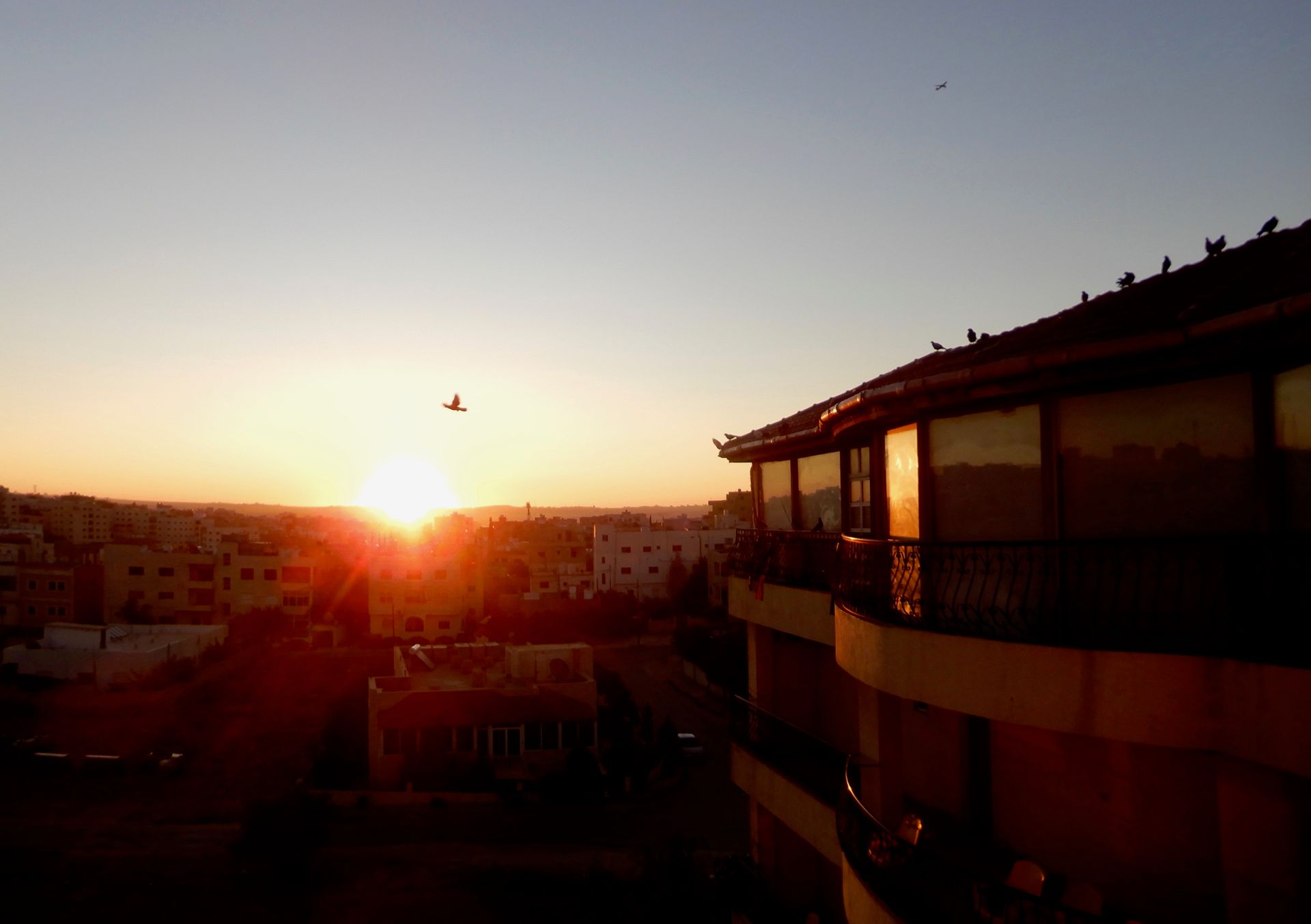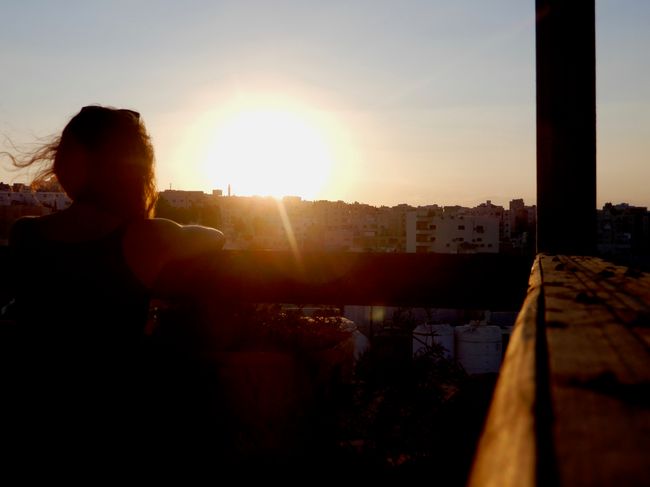Back in Ramallah
ପ୍ରକାଶିତ |: 12.02.2020
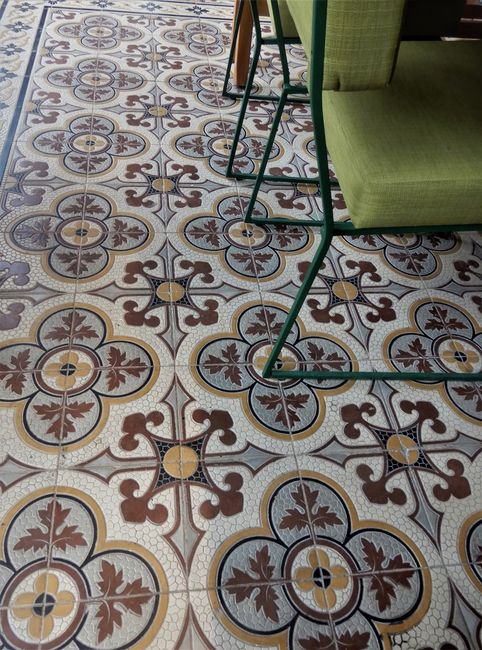
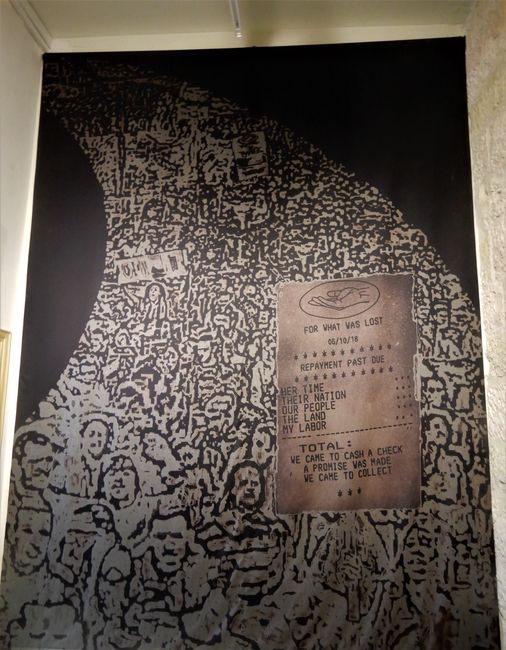
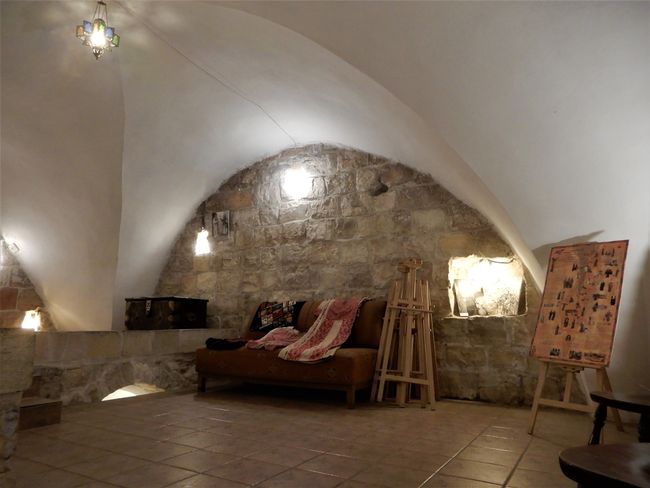
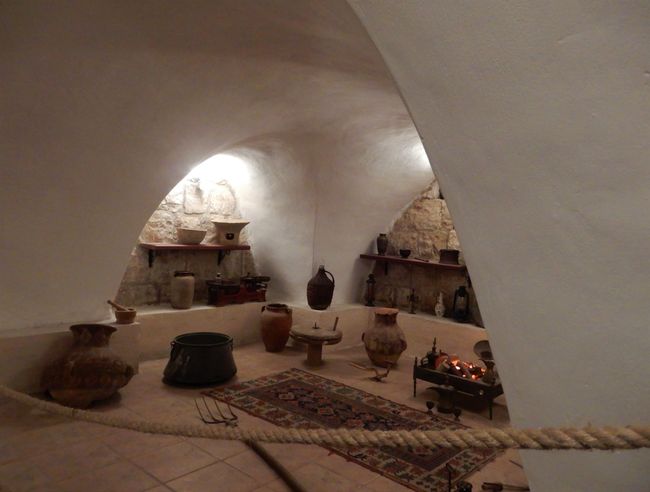
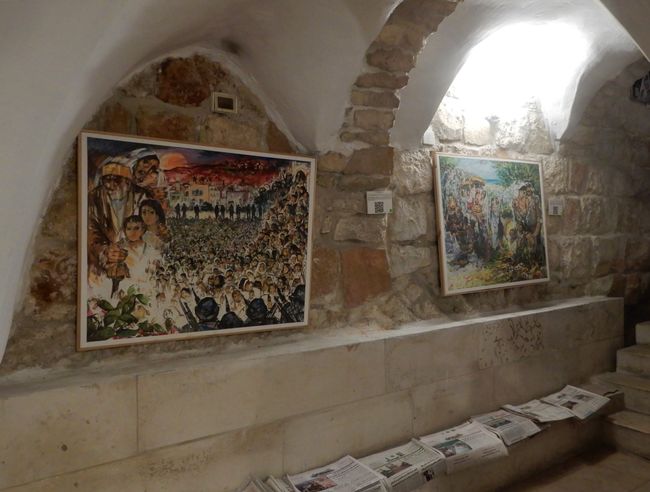
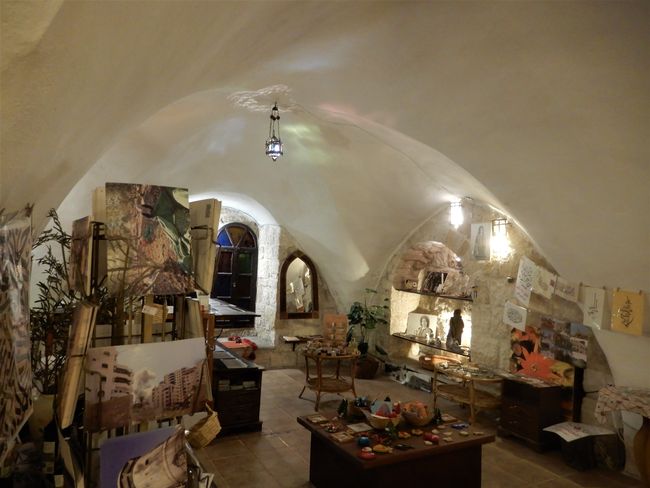
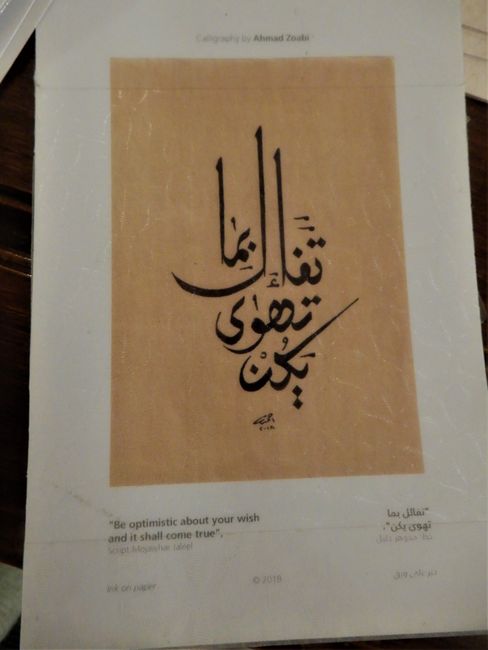
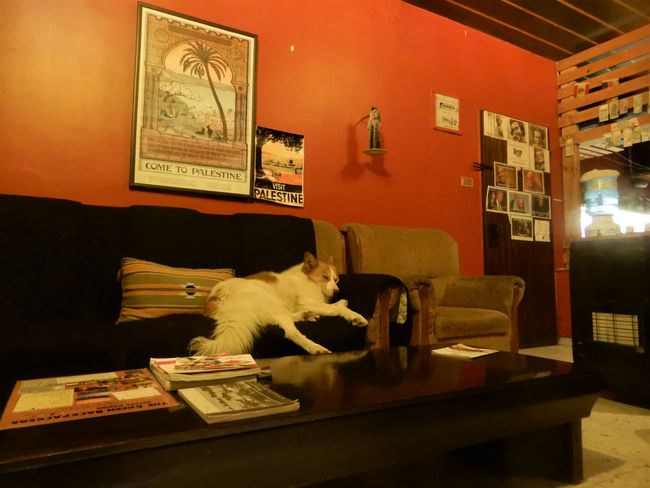
Monday, February 10
We sleep in today, get some hummus and labneh from the corner store, and have breakfast with the dark nut bread we bought at the market in Jerusalem. Yum. It's already 1 o'clock when we leave the hostel. And again, the weather today doesn't invite us for long walks. So, it doesn't take long until we enter the next building. It's the Khalil Sakakini Cultural Center.
The center is an NGO that promotes Palestinian art and culture. We step into a beautiful room with high ceilings and a pretty tiled floor, where various readings are available and handmade Palestinian accessories are for sale. Lea's gaze falls directly on a book that explains the history of Jerusalem in particular and Palestine in general, which we can't put down anymore. It vividly describes how everything has happened in the last and this century, that after a while of standing, we sit down in the next room to continue our reading. So here we have another little history lesson.
In 1882, the first Zionist immigrants arrived in Palestine. In 1897, at the first Zionist Congress under Theodor Herzl, it was decided to create a publicly and legally secured homeland for Jews in Palestine. The Zionist Congresses discussed how this could be achieved through diplomatic agreements with European powers.
After World War I and the collapse of the Ottoman Empire, Palestine became a British Mandate territory. The British initially supported the growing Zionist immigration, on the condition that "nothing should be done which might prejudice the civil and religious rights of existing non-Jewish communities in Palestine". Initially, Jewish immigration to Palestine met little resistance from Palestinians. However, the increasing cultural and political tensions eventually led the British Mandate government to try to control immigration through immigration certificates and quotas.
The tensions in the country, as well as the costs of soldiers and policemen, became so great that the British government gave up its mandate for Palestine in 1947 and referred the "Palestine question" to the UN. A special committee of the UN was to draw up a partition proposal. The USA and the Soviet Union supported this proposal, which was adopted by the General Assembly in November 1947. Palestinians and Arab members of the UN rejected the plan, and it was not accepted by the Jewish side either, which is why Britain withdrew from Palestine in 1948.
What exactly happened in 1948 can certainly be described in detail. In short: the Jewish National Council declared the Israeli Declaration of Independence for the Jewish people, based on the decision of the UN General Assembly, and thus the establishment of the State of Israel. The Soviet Union and the USA recognized this state, and as a result, the following Arab countries advanced into the Arab-populated parts of the British Mandate territory: Egypt, Jordan, Iraq, Syria, and Lebanon.
This led to the first Arab-Israeli war in Palestine. The Arab alliance did not accept the UN partition plan for Palestine and denied the right of Israel's existence. The war ended with Israel's victory and armistice agreements that allocated 75% of Palestinian territory to Israel. The Gaza Strip fell to Egypt, eastern Palestine to Jordan, and Jerusalem was divided: West Jerusalem went to Israel, East Jerusalem to Jordan. As a result of the Arab alliance suffering a military and political defeat, the emergence of an Arab state in Palestine was prevented, as provided for in the UN partition plan. Approximately 750,000 Palestinians were displaced from their homes during this time. This part of history is something like the complement to the movie we watched yesterday in the synagogue. And it is not insignificant.
We eventually release ourselves from the book and decide to walk around the city a bit more. Just a few streets away, we suddenly find ourselves in front of the "Dar Zahran Palestinian Heritage Center." We had seen it on the city map before. So, we enter an old house through a colorful and beautifully decorated front yard, where we are greeted by a nice man inside, who first offers us caramel candies. He also makes us coffee and asks us to take a seat.
So we sit in a beautiful vaulted cellar-like room and are now explained that the house has been in his family's possession for 250 years. He says that he has traveled a lot and found museums or cultural institutions in every country that tell something about the country, its people, and culture. Here in Palestine and (specifically in Ramallah), he saw a gap in this respect and therefore decided to make the old house from his family's property accessible to the public. So he prepared and set everything up here on his own and now tells the story of Palestinian heritage with the help of photos and various objects.
He is always happy to have foreign tourists, he says, to counter the narrative of the terrorist Arabs and Palestinians that is so common in the Western world. However, many things have changed here in Ramallah. Since the last two wars, there has been no daily violence, but other factors that make people's lives difficult. Many Palestinians would emigrate due to a lack of prospects - if they can. Dependency on the Israeli government, for example, regarding electricity and water, is also exhausting. As if to confirm this, the lights suddenly go out. Power outage. But only for a few minutes today. Sometimes it can last for hours or even days.
Furthermore, there is constant surveillance here. This also leads to a paranoid behavior of the Palestinians themselves (even Lea and I are not spared from that) - almost every house here has surveillance cameras. Including his house. However, sometimes the Israeli military comes and confiscates the footage, as he says. There is nothing that can be done about it. However, it is evident that the Israeli government can theoretically and practically find out the position of anyone who is in the country this way. One gets used to it, he says with a shrug.
He now shows us a magnetic card that he applied for. For that, he had to give his fingerprints, have his face scanned, and pay a certain amount. Now, when he applies for a permit, for example, to go to Tel Aviv (that is, to the Israeli side), the magnetic card is programmed accordingly, and he can pass through the necessary checkpoints with it. To enter parts of his former homeland, he now has to make himself a transparent person and also pay money. Whether and for how long he ultimately obtains such permission is usually completely arbitrary in the end. Welcome to Palestine.
We finally look at the exhibition and the beautiful old rooms, have something to eat, and then relax in a cozy Shisha bar. The waiter is very friendly and quickly starts a conversation with us, even though he speaks very little English. He tells us that he has been in prison, shortly after he introduced himself and asked us a few questions. Lea and I are a little overwhelmed by the situation. His friend, who owns the Shisha bar, comes to his aid, and they try to explain the situation to us together. They say he had problems with Israeli soldiers. That's why he was in prison three times over a total period of about three years. The first time when he was 14.
We still can't do more than shake our heads as he shows us videos that show him as a 14-year-old with a group of other Palestinians being arrested. In Nablus, the Palestinian city he comes from. You can see Israeli tanks and soldiers taking away a group of bound individuals. Of course, we do not know what happened before and after. Nevertheless, it is unbelievable what has taken place and is still taking place here on Palestinian soil. That much is certain.
We ask them what solution they see for the conflict here. They look at each other. "Salam," they say. Peace. They are now happy here in Ramallah. They are doing well. And they just want to live in peace. And that is what we all want in the end. To live in peace. But one can probably only understand what a valuable asset that is if one has grown up in a world without peace.
ଉତ୍ତର
